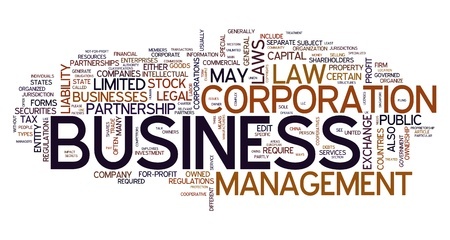
It's the worst nightmare of many entrepreneurs… a cease and desist letter. When you get one of these, it usually means that you have (knowingly or not) done something you shouldn't have done, and someone else wants you to stop it.
Thinking about writing a cease and desist letter? I previously wrote about 5 cease and desist letter mistakes that make you look like an amateur.
So what do you do to keep things from escalating when you get one of these suckers? The answer isn't so simple. Let's break this down bit by bit.
If your cease and desist letter relates specifically to a trademark or trade dress, then you also want to review this other article I wrote that explains in more detail how to handle a trademark cease and desist letter.
First things first – what exactly is (and what is not) a cease and desist letter?
A cease and desist letter is a letter, typically but not always, written by a lawyer who wants you to stop doing something that allegedly violates the rights of the lawyer's client. They are typically several pages long and they sound very scary and convincing. This is not unintentional. The lawyer writing the letter wants you to believe that they mean business, and that if you don't stop whatever infringing activity you are currently doing right away, that they will sue the snot out of you and take your first-born child.
On the opposite side of the spectrum, these letter can also be written by a non-lawyer who grabbed a form letter off the internet and provides very little in the way of substantive legal argument to support their demands that you stop your infringing action.
Either way you dice it, these letters can be very scary to a non-lawyer and should be given the utmost respect, at lease until you know for sure whether the claims in the letter are legally valid.
That being said, a cease and desist letter has no legal significance. In its purest form, it is nothing more than an “offer” for you to enter into a contract with the party that sends the letter to stop doing whatever it is that they say you are doing wrong.
A cease and desist letter is not a lawsuit, it is merely one lawyers opinion of how the law applies to the facts of your situation. If you really wanted to, you could ignore it completely (although we don't recommend this for a number of reasons which will become apparent below). That being said, the person or law firm sending you the letter can't force you to do anything at all – only a judge can do that.
So why do Cease and Desist letters sound so scary?

Assuming that the letter was written by a lawyer, it's because the letter was written by a lawyer. Lawyers are trained to use certain language and legal arguments that, to the untrained reader, sound really scary. They will cite cases and statutes and facts that appear to be bad for you. What they don't do is present both sides of the story – they present their client's arguments only, and typically make them sound rock solid.
Any potential weaknesses in their position, if there are any, will not be disclosed in a cease and desist letter. The hope of the lawyer writing the letter is that you will be so scared that you will just cave to what they want you to do. Any response other than total acquiescence will necessitate additional legal fees by their client. But, in the event that you are scared enough to go see a lawyer, they want your lawyer to understand that they have a strong case and are competent lawyers to be reckoned with.
What to do when you get a cease and desist letter?
In researching other articles for this post, I came across some great advice from Elizabeth Potts Weinstein, a lawyer in California. She says that you should go and get a cup of tea. I love this, and I think it is a great way to say you need to relax, count to ten, breath, go for a walk, etc. Do whatever you need to do to clear your head before coming back to the letter. Getting a cease and desist letter is stressful, no matter how you look at it.
Ms. Weinstein provides some additional advice in her blog post that includes staying off social media, saving all your documentation about the case, and thinking about what complying with the demands in the letter will do to your business. I want to address those tips, as well as a couple of others, here below:
Staying off Social Media
Like it or not, anything you do or say online can be brought into court. So now is the time to take a break from Facebook, at least as it pertains to your business. If you are using a name or brand that a law firm says belongs to them, stop posting things online about your business until you have talked to a lawyer. In addition, do NOT post a copy of the cease and desist letter online. Assume that anything you do online, from here on out, can be used against you in court later (and not in a good way).
Preserve all Evidence
The next thing you want to do is to preserve all the evidence in your case. Don't go deleting files or emails or anything else. Print things out and start a file. You will need all this information in the event you get sued, or need to discuss this case with your legal or other professional advisors.
Similarly, don't throw the letter away or ignore it. This is a matter that will NOT just go away, even if you ignore it. Chances are that if you do nothing it will just make things worse for you. So read the letter carefully and save it in a safe place.
Consider the Business Implications of Complying
There are legal implications as well as business implication to complying with the demands of this letter. As I discuss in a little bit, you will need to consult with a lawyer about the legal side, but you also need to consider what compliance means from a business standpoint. Will compliance mean bankruptcy for you? Will you be forced to shut down your business? Do you have the resources available to fight this if recommended by your lawyer? These are all important factors to consider.
Talk to Your Lawyer
If you don't already have a lawyer on retainer, now is a good time to consider talking to one. The biggest problems I see from clients occur when they take actions (no matter how well-intentioned) thinking that they will help their case, when in fact they just make a bad situation even worse. A lawyer's job is to look at your letter, ask you questions that will help them to analyze just how bad the situation is for you, set realistic expectations about what will happen going forward, and then provide you with some options on how best to proceed. If you would like to schedule a call with our office, you may click here to fill out our contact form.
What's the Best Way to Respond (or Not) to a Cease and Desist Letter?
Once you have consulted with a legal professional and your other business associates, the next step is to determine whether you are going to respond to the letter, and if so, how you will respond. In our experience, it is almost always better to respond to the letter than do nothing. Even in situations where the person that sends the letter has no legal basis to stop you from doing or selling whatever it is that you are doing or selling, then a strongly worded response from your own lawyer may be the best option. Here are some other options:
Write a Response Yourself
Unless you are going to have a lawyer look over your letter before you send it (in which case you should just have the lawyer write it), then don't bother writing your own response, especially if you are responding to a law firm. These are not normal people you are responding to, this is a law firm. Nine times out of ten, if you decide to write your own response it will do more harm then good. So no matter how smart or good of a lawyer you think you can play in real life, I urge you to leave the writing to the lawyers.
There is another, legal reason that you should have a lawyer respond for you. A lawyer's response can be considered settlement negotiations and is typically inadmissible in court. If you respond directly, it is considered a “party opponent admission”, and is excluded from the hearsay rules under the federal rules of evidence. In other words, whatever you say in your letter can be used against you later in court, while what your lawyer says in response is inadmissible in court. That's a huge benefit to having a lawyer write the letter for you.
Have Your Lawyer Respond
If you and your lawyer have gone through all the facts of your situation, and the prognosis of you winning in court (should it get there) is grim, or even if you just want to avoid all the nastiness and expense that comes with going to court, then having your lawyer respond is typically the best bet.
If you are selling physical products using a name that is likely to be confused with an already registered trademark, then the lawyer's job is to help you negotiate a settlement. Chances are, you will have thousands of dollars of branded inventory that would go to waste if you immediately complied with the cease and desist letter. Your lawyer can help you negotiate a sell out period, so that your are not stuck with lots of inventory that you can't sell.
If you are selling information products or services that need to be rebranded, then similarly, the lawyer can help negotiate a delay so that you can rebrand. It will suck and it may take some time, but you can recover from this if you do it right.
Chances are, the party that hired a lawyer to send the letter doesn't want to go to court anymore than you do. They just want you to stop using their name or a name that is similar to their registered trademark.
What About Situations Where You Aren't Doing Anything Wrong?
Believe it or not, there are many situations where the person that received the cease and desist letter isn't even doing anything wrong. It is entirely possible that the person that sent you the letter is actually a person or business that is infringing on YOUR intellectual property. I realize this seems ballsy, and it is – but it definitely happens. Just ask Matthew Inman from The Oatmeal. A company that was ripping off his intellectual property sent him a demand letter requesting $20,000 in damages!
And there or other situations, such as this New Jersey town that sent a cease and desist letter asking a private citizen to take-down their website. That citizen found a lawyer to write a response pro bono, and the response is one of the best crafted legal letters that you will ever read.
Chances are, you aren't as witty as Matthew Inman, and I'm guessing that Stephen B. Kaplitt can't take every pro bono case that walks in the door, so you will need to find your own lawyer. Once you do, you can either go public, send them your own cease and desist letter, file a lawsuit, or just respond as your lawyer feels is appropriate.
In any event, do NOT do anything without talking to a lawyer first and plotting out an appropriate course of action.
Can't I just Comply?
Honestly, if you don't want to spend a lot on a lawyer, or if complying with the response won't cause you too much trouble financially or otherwise, then yes, you could just do what they say. But this will depend in large part on what they want you to do, how soon they want you to do it, and whether complying will make you legally culpable for anything else.
Even if you just want to comply, I recommend that you at least talk to a lawyer first and make sure that doing so will not damage your business in a meaningful way or make you susceptible to any other legal claims.
When in doubt, contact a lawyer that can walk you through the proper analysis to evaluate your particular situation.
Other Resources for dealing with a cease and desist letter:
http://blog.legalhero.com/cease-and-desist




Thank you